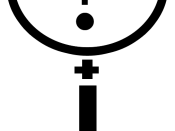Critical thinking is "the art of thinking about your thinking while you are thinking in order to make your thinking better.More clear, more accurate, or more defensible. Critical thinking includes a complex combination of skills.
But thinking is not driven by answers but by questions. Had no questions been asked by those who laid the foundation for a field-for example, Physics or Biology-the field would never have been developed in the first place. Furthermore, every field stays alive only to the extent that fresh questions are generated and taken seriously as the driving force in a process of thinking. To think through or rethink anything, one must ask questions that stimulate our thought.
For the purposes of critical thinking, all sentences can be divided into those that can be true or false, and those that cannot. Only a few sentences cannot be true or false: commands ("Just do it."),
exclamations ("Far out!"), and questions ("Why not?"). Exclamations and commands are rare in the persuasive appeals that we call arguments in critical thinking, though they are much more frequent in the kind of arguments you get into at home or in a bar or after an accident, where there is a good deal less analysis than anger. Questions can be found more frequently in critical thinking, but these are often rhetorical questions: questions asked in such a way that they make a point without requiring an answer, or questions with answers so obvious they don't really need to be asked.
Sentences that can be true or false--the vast majority of all sentences in critical thinking--are called statements or claims. Note that you don't need to know whether a statement is true or false, just that it has the form of sentence that can be true...


